Music Skills Vital For Success
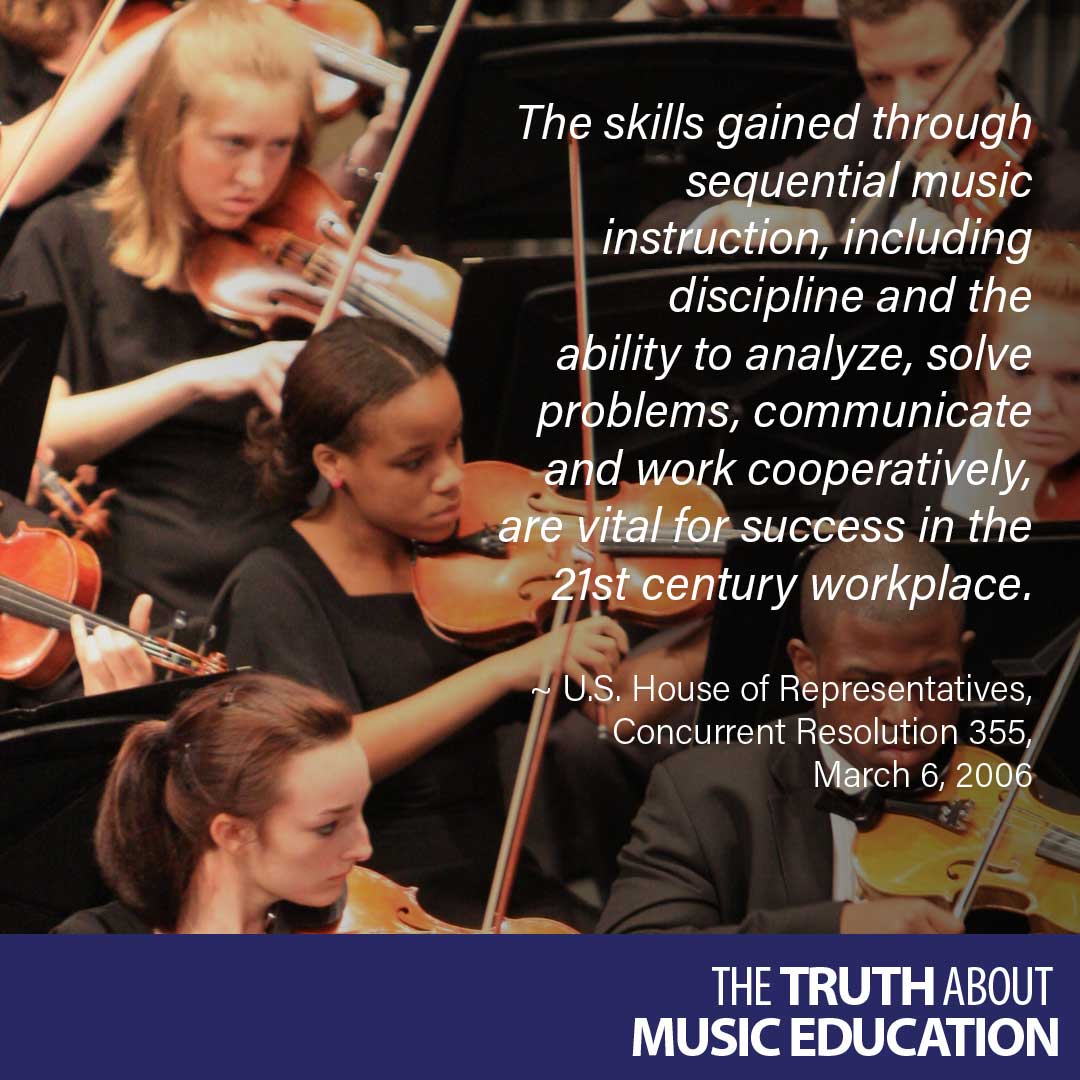
The skills gained through sequential music instruction, including discipline and the ability to analyze, solve problems, communicate and work cooperatively, are vital for success in the 21st century workplace.

The skills gained through sequential music instruction, including discipline and the ability to analyze, solve problems, communicate and work cooperatively, are vital for success in the 21st century workplace.
This month’s staff spotlight is with Jeremy McQueary. Jeremy is our Vice President of Sales and Marketing and has been with us for just over 19 years. Watch this interview to learn more about him.
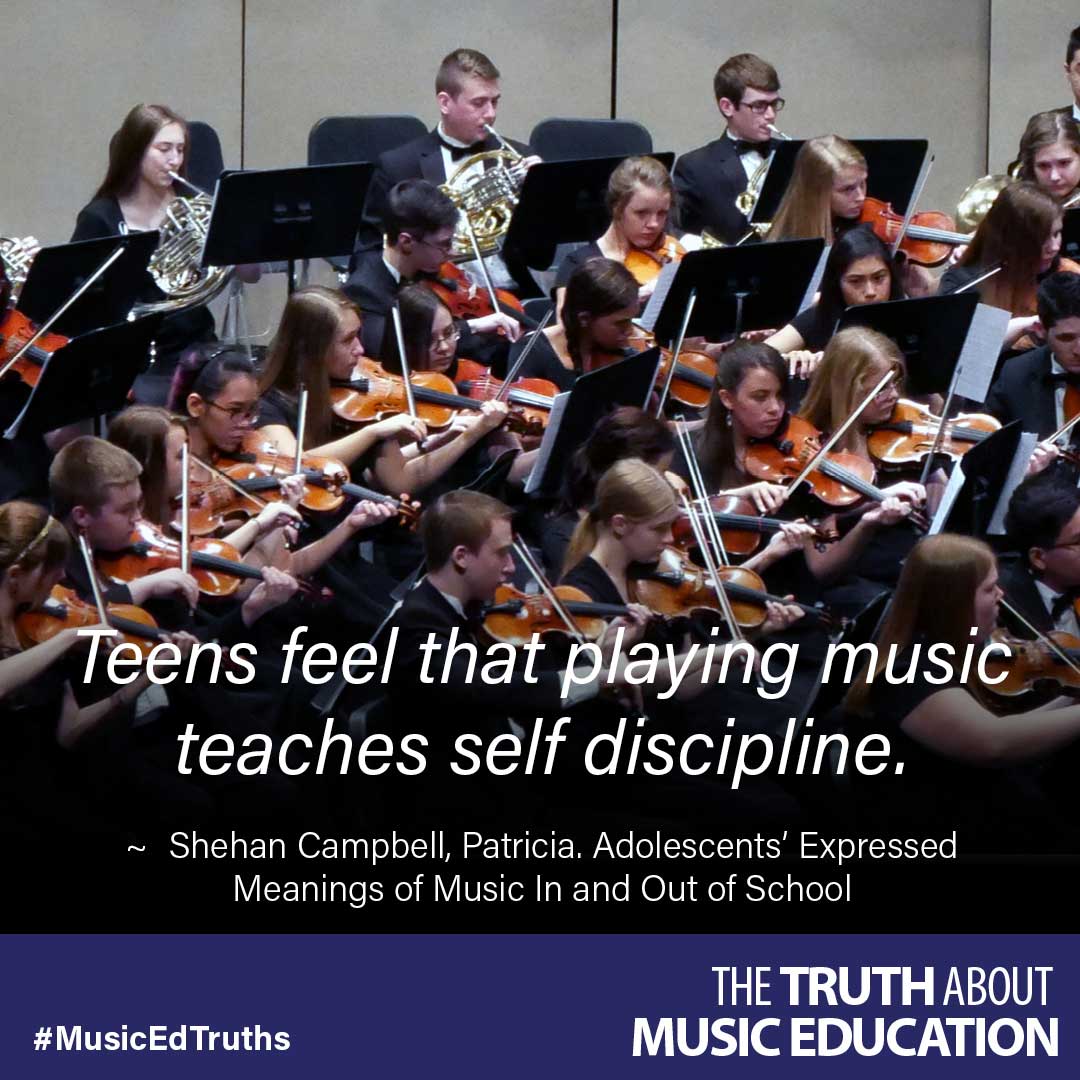
Teens feel that playing music teaches self discipline.
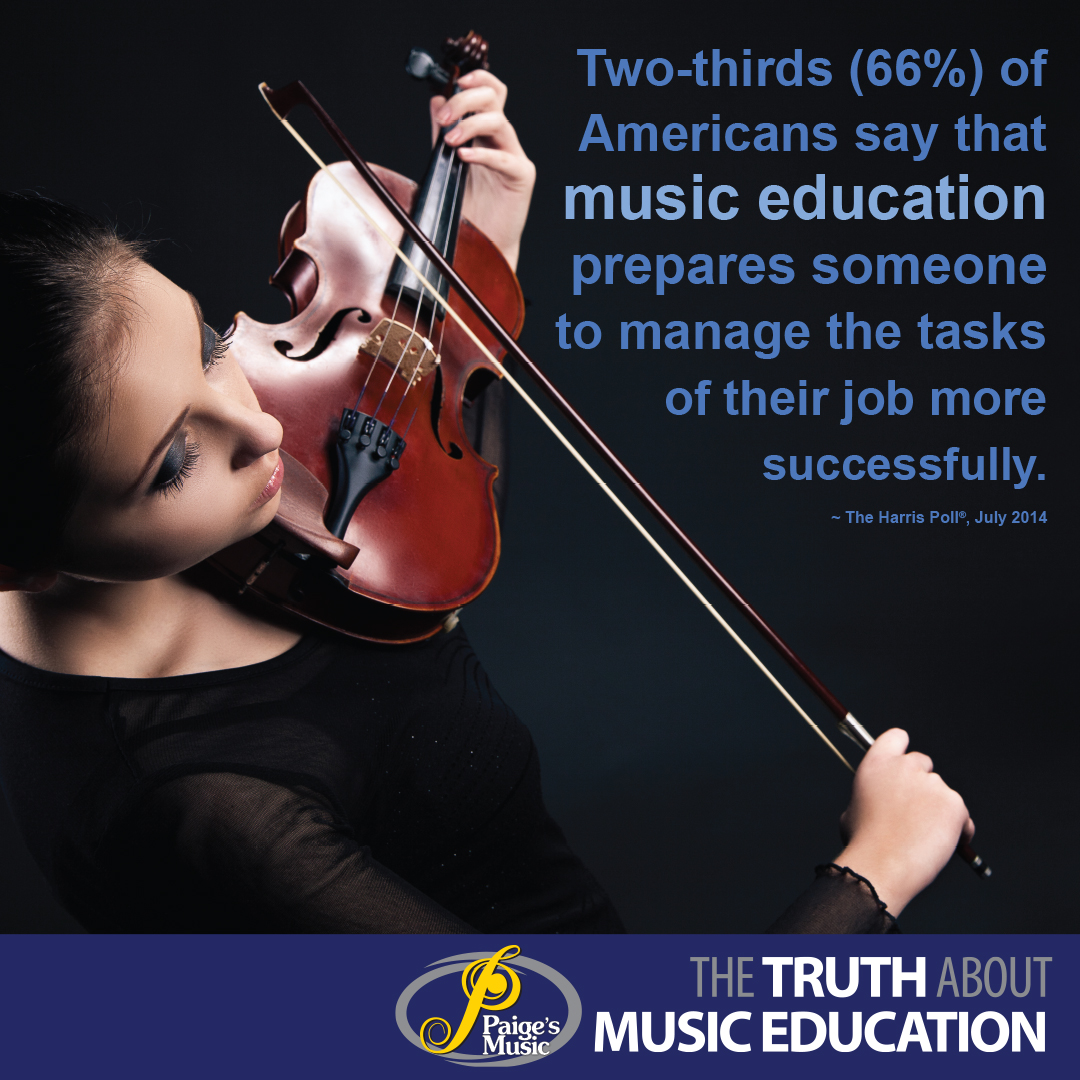
Two-thirds (66%) of Americans say that music education prepares someone to manage the tasks of their job more successfully.
Daily care and maintenance of your instrument is very important to how well your instrument performs. Watch this quick video below for a few, quick tips on caring for your French Horn.
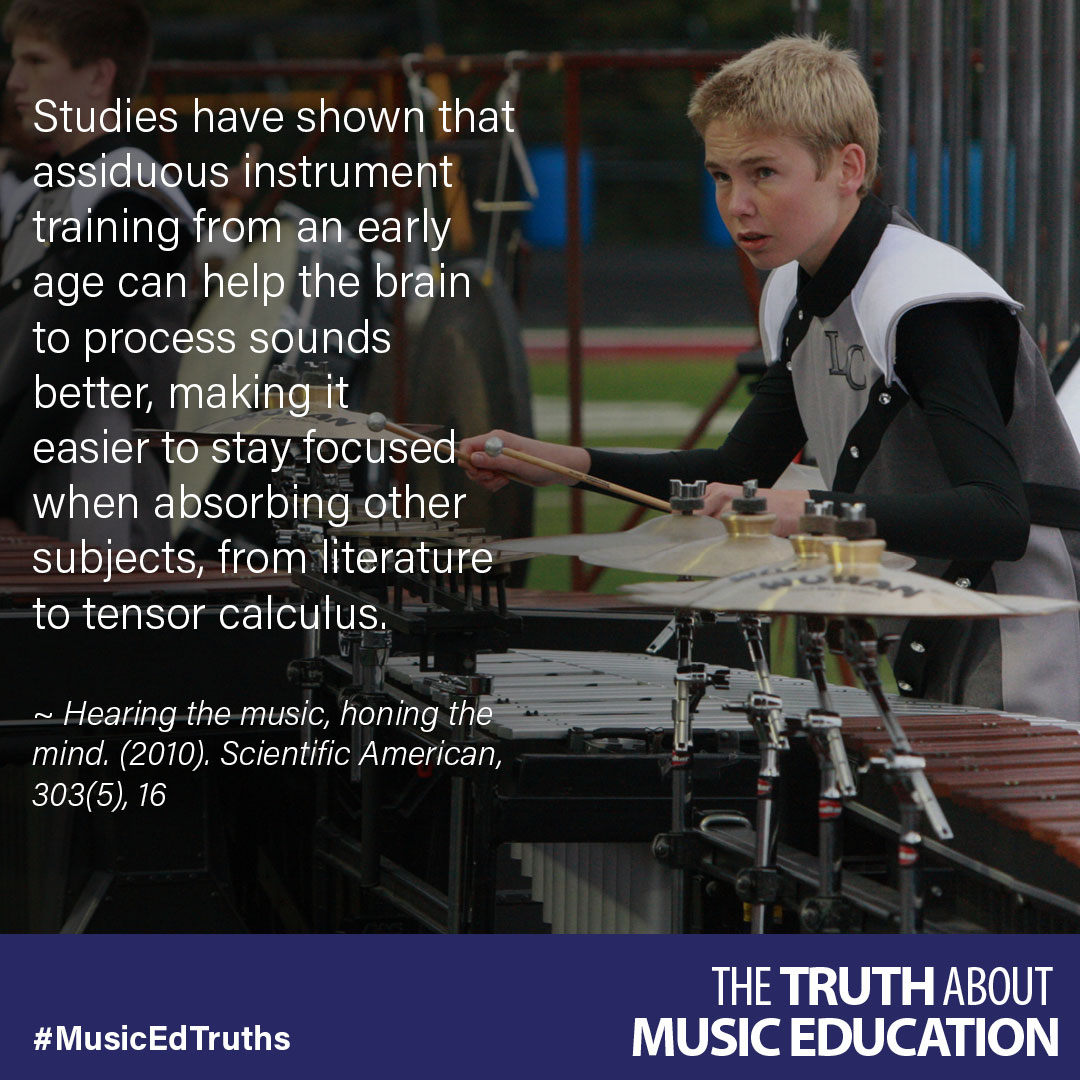
Studies have shown that assiduous instrument training from an early age can help the brain to process sounds better, making it easier to stay focused when absorbing other subjects, from literature to tensor calculus.
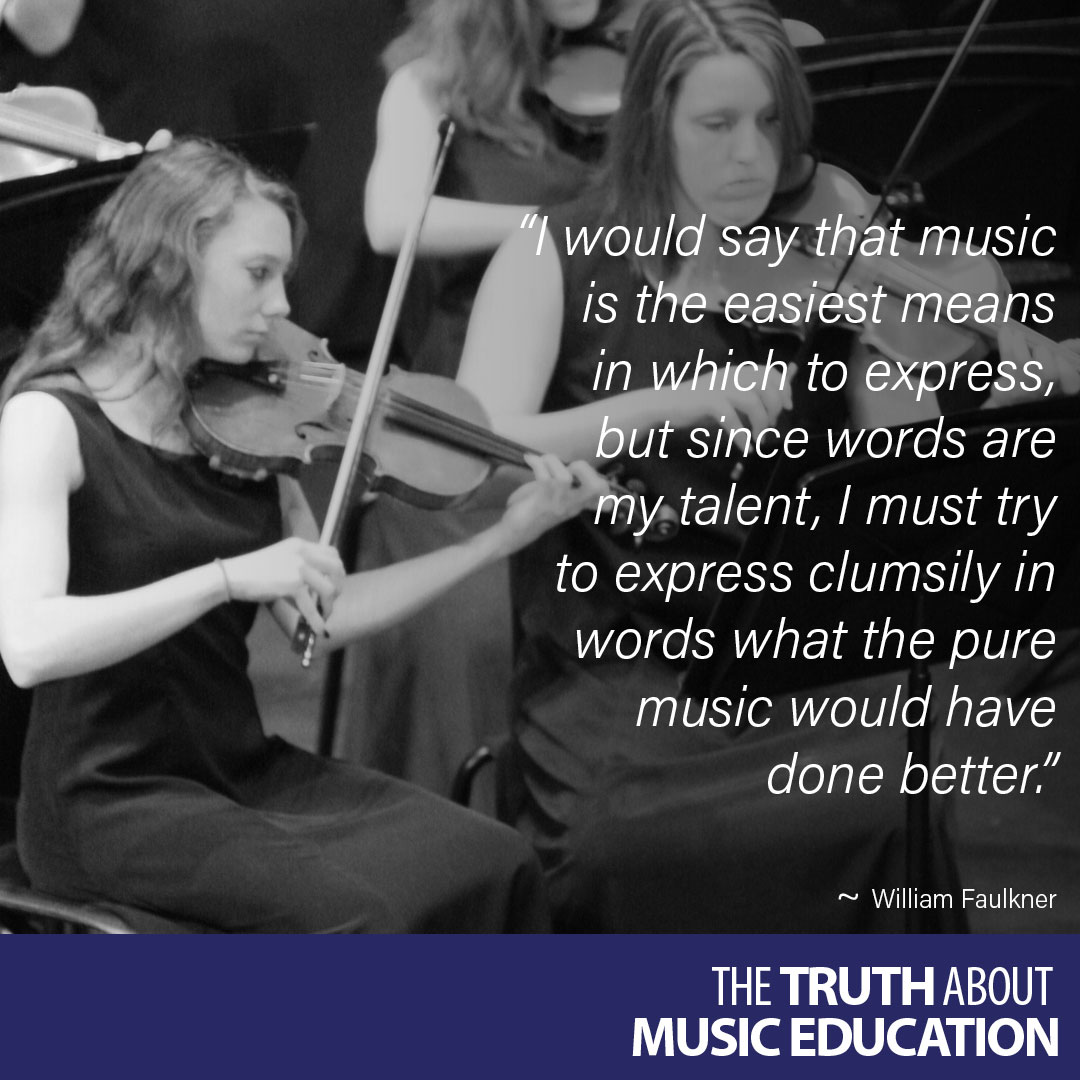
“I would say that music is the easiest means in which to express, but since words are my talent, I must try to express clumsily in words what the pure music would have done better.”
For the past few years we’ve held an event that not only saves you money on great instruments and supplies, but it’s also a lot of fun! We call it our Music Madness Sale and it happens in coordination with the college basketball tournament that begins about this same time.
From March 16th through the 18th you’ll be able to come in to the store for some great savings. You’ll receive a scratch-off game “ticket”. Scratch off your ticket to reveal your discount. Then, if you’d like, shoot a basketball to possibly double your savings! Each family gets a warm-up shot, and then you let the real thing fly. The savings range from 5% – 20% off of our already low prices. If you’re in the market for an instrument, now’s the time to come in to scratch, shoot and save!